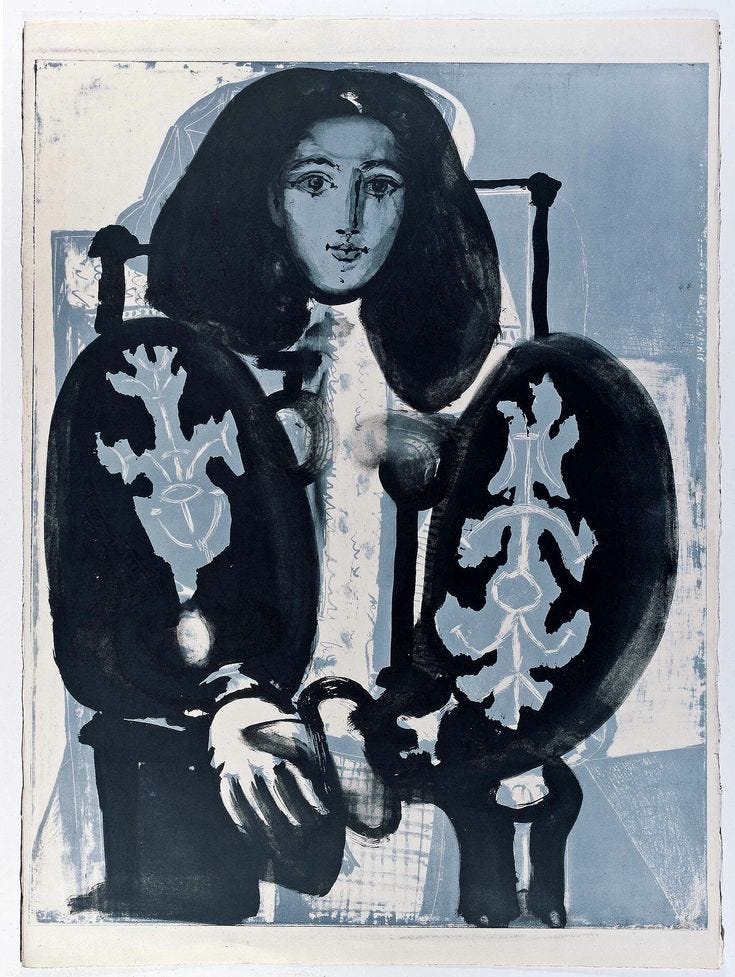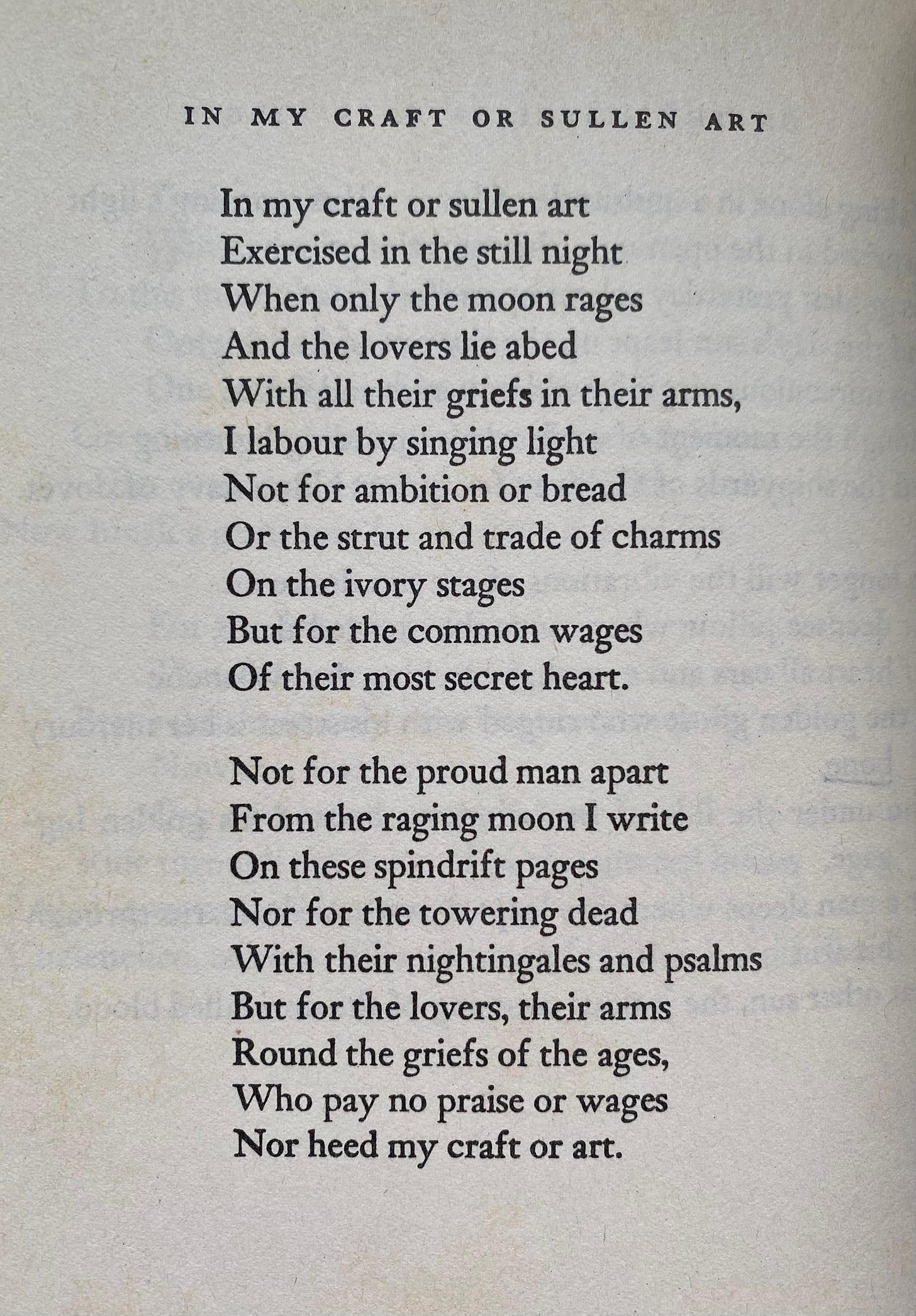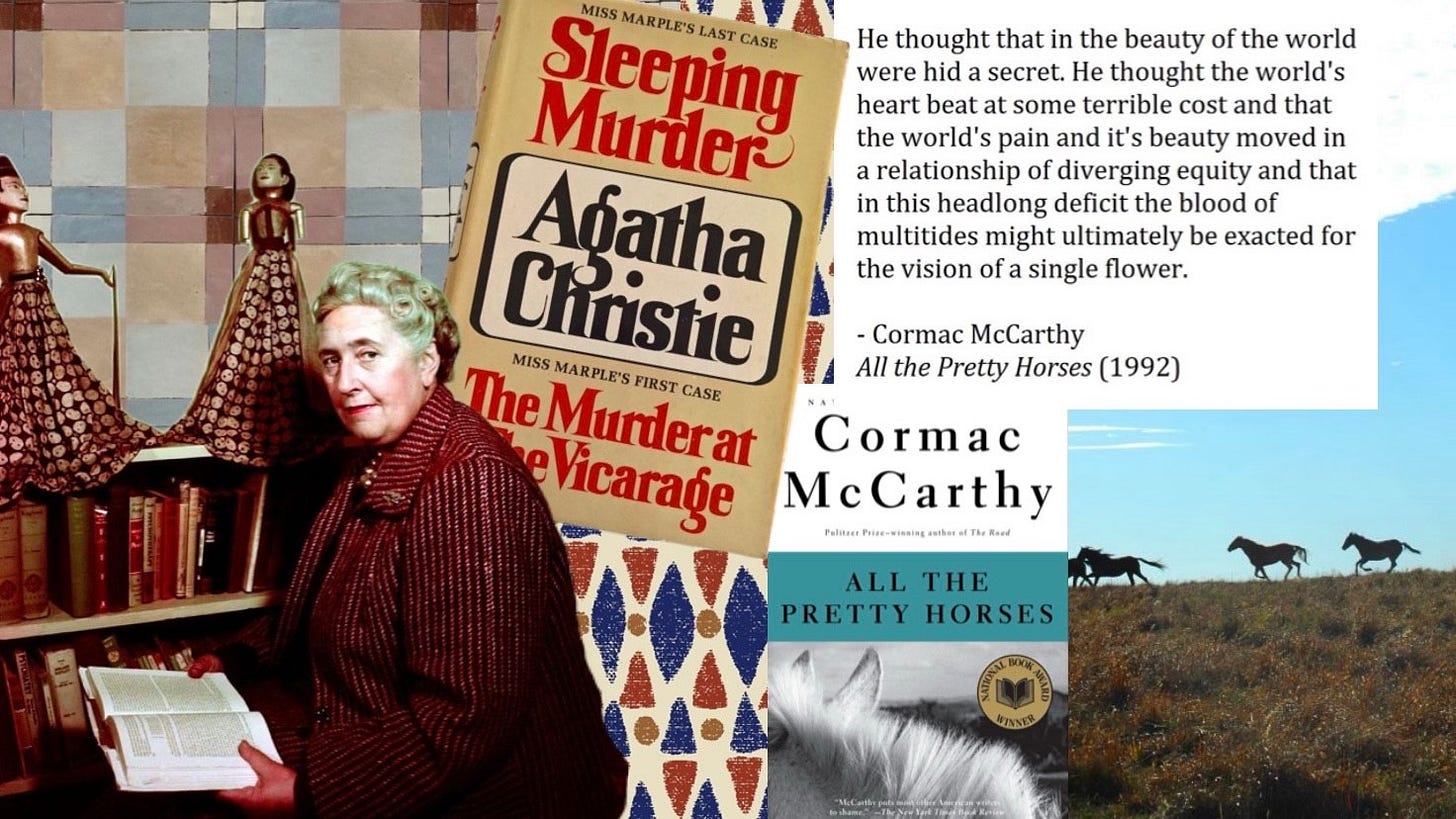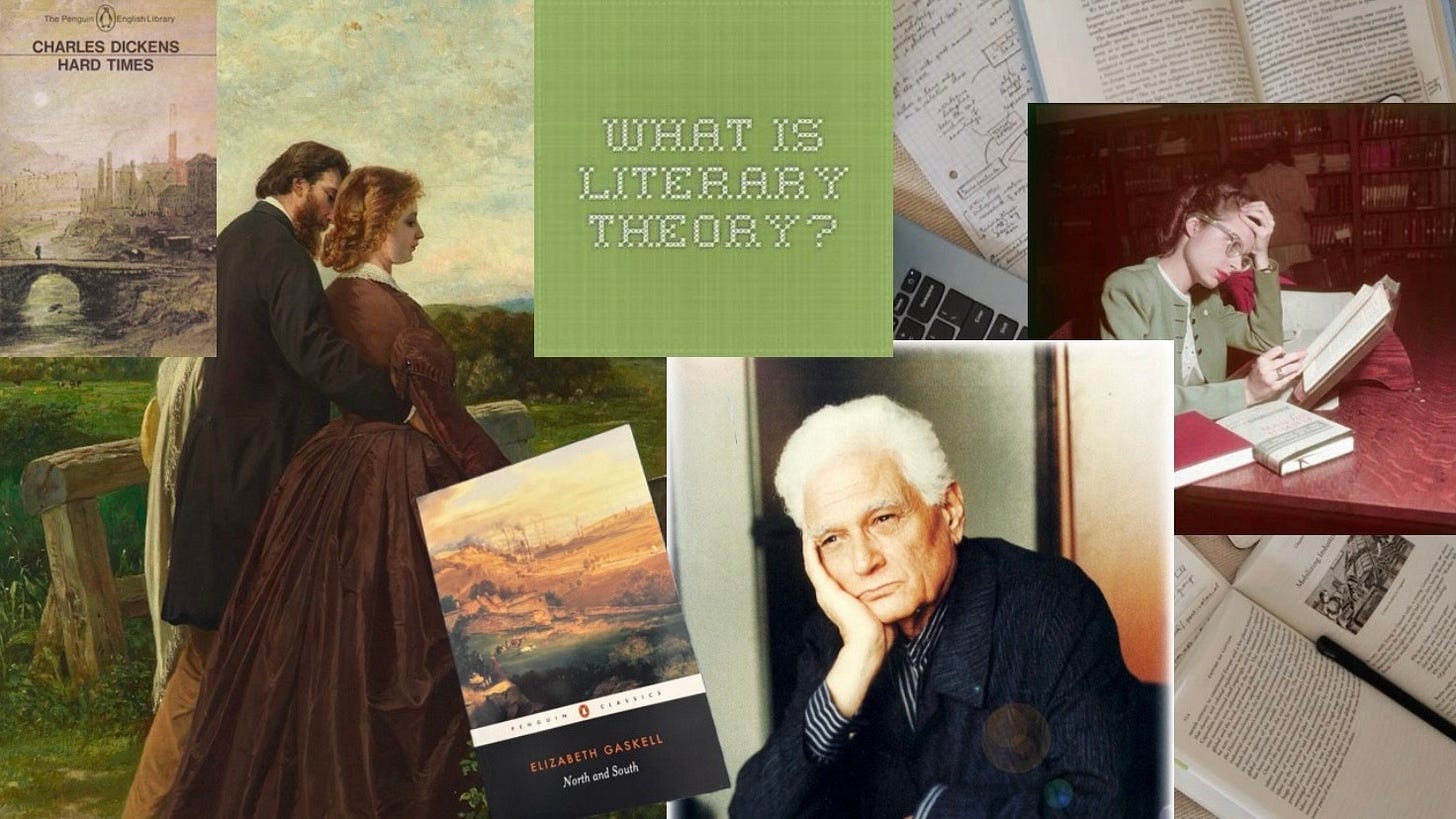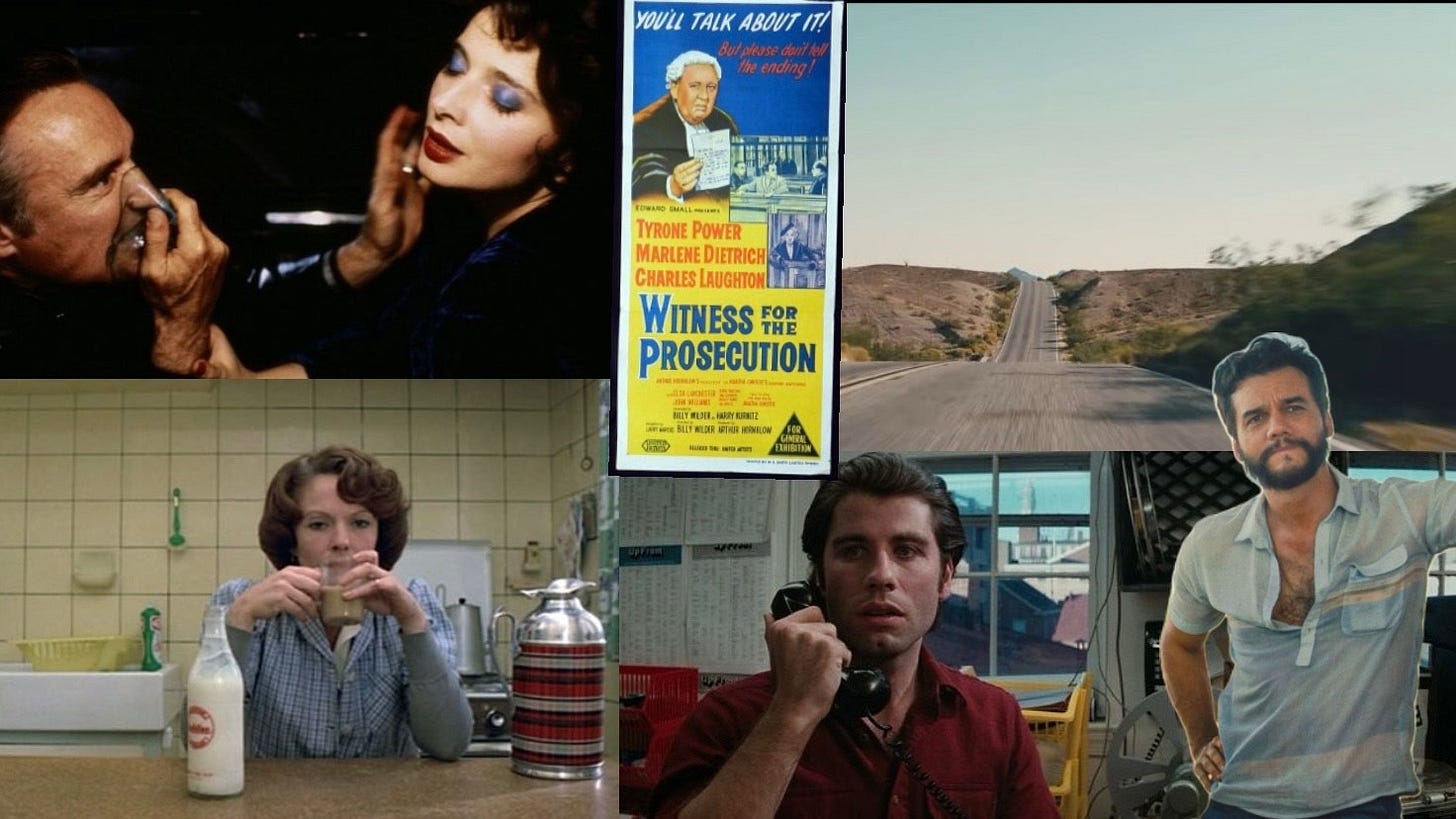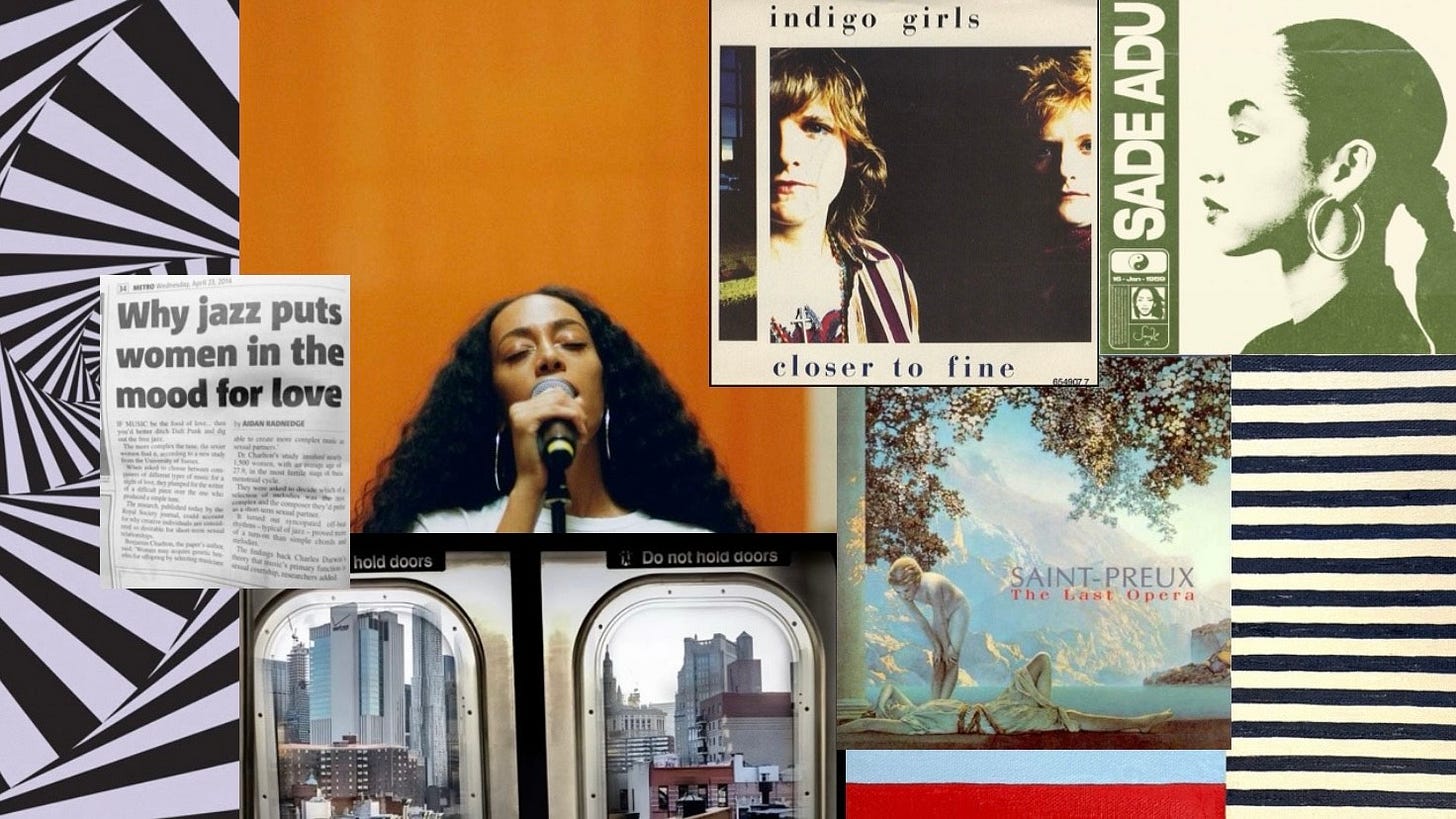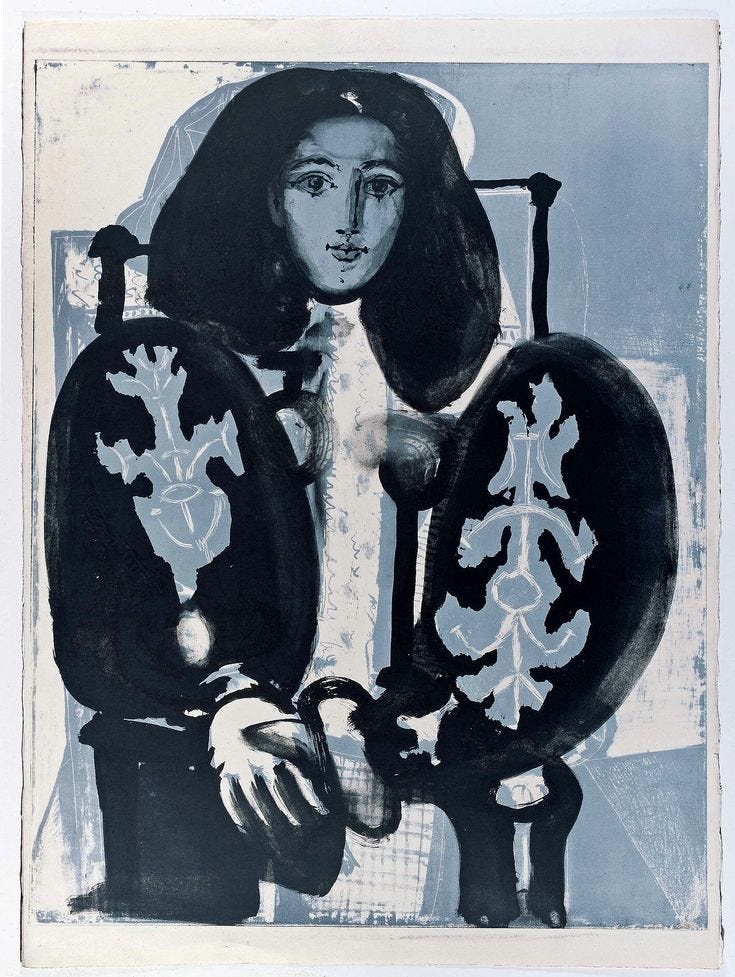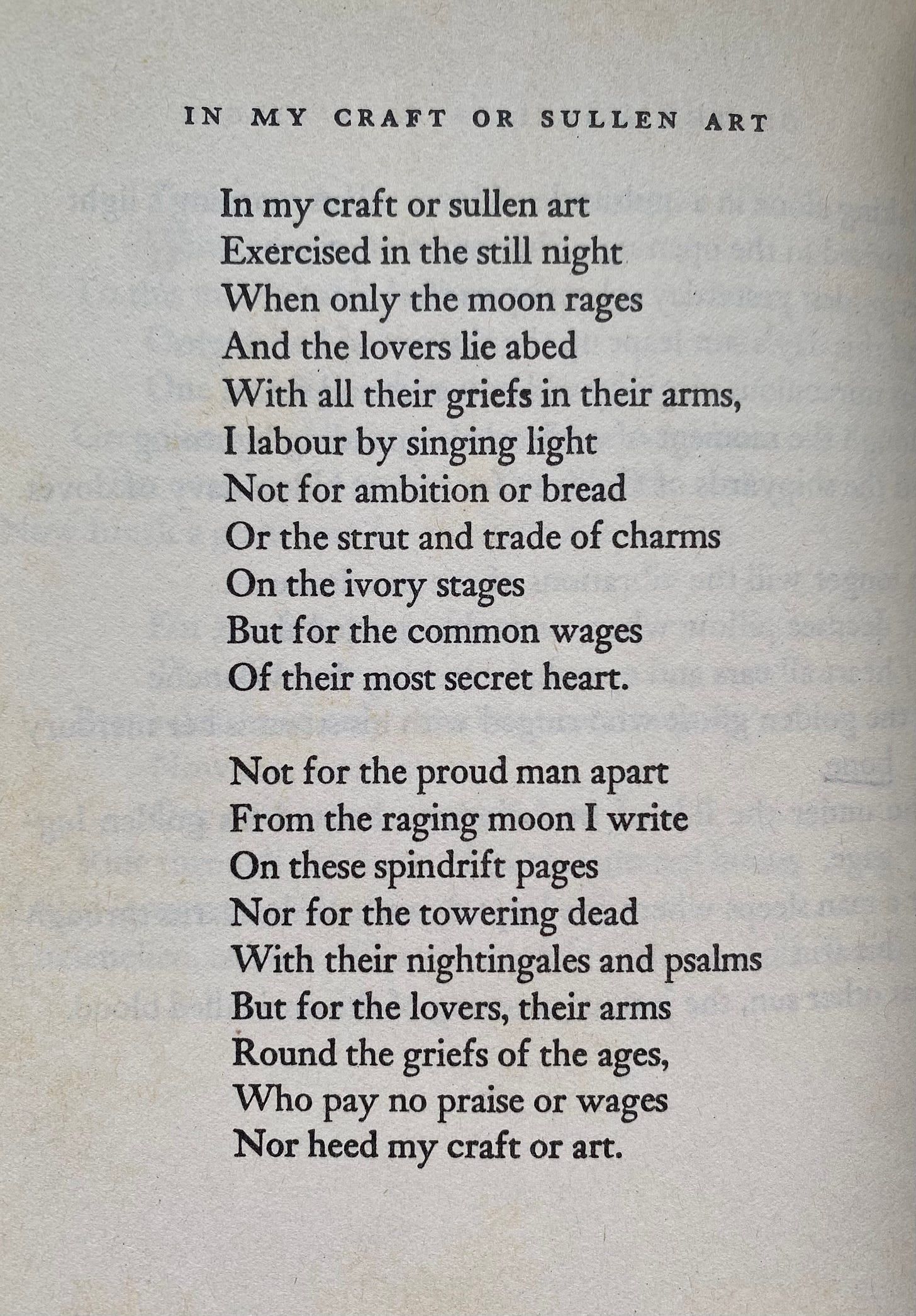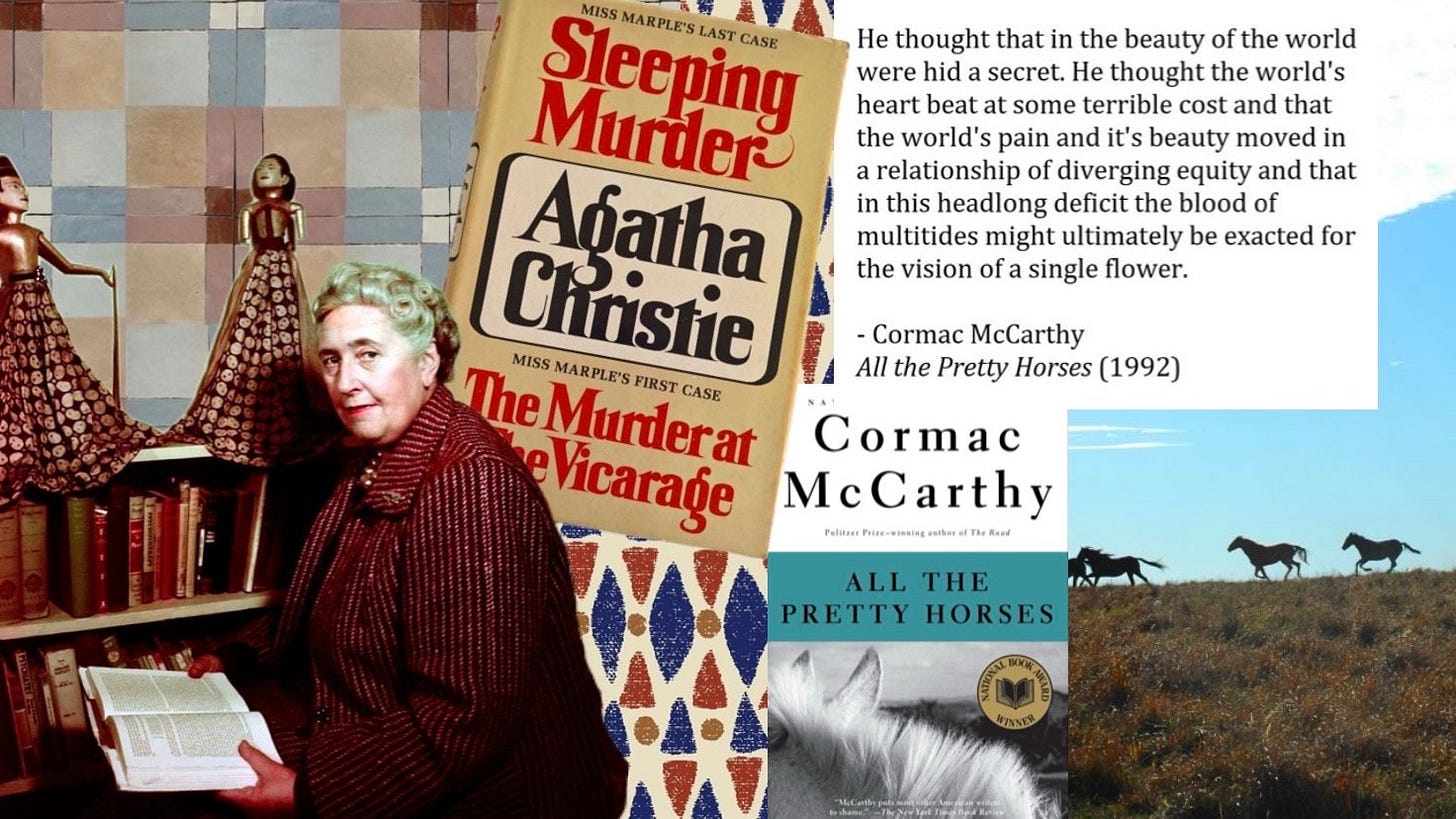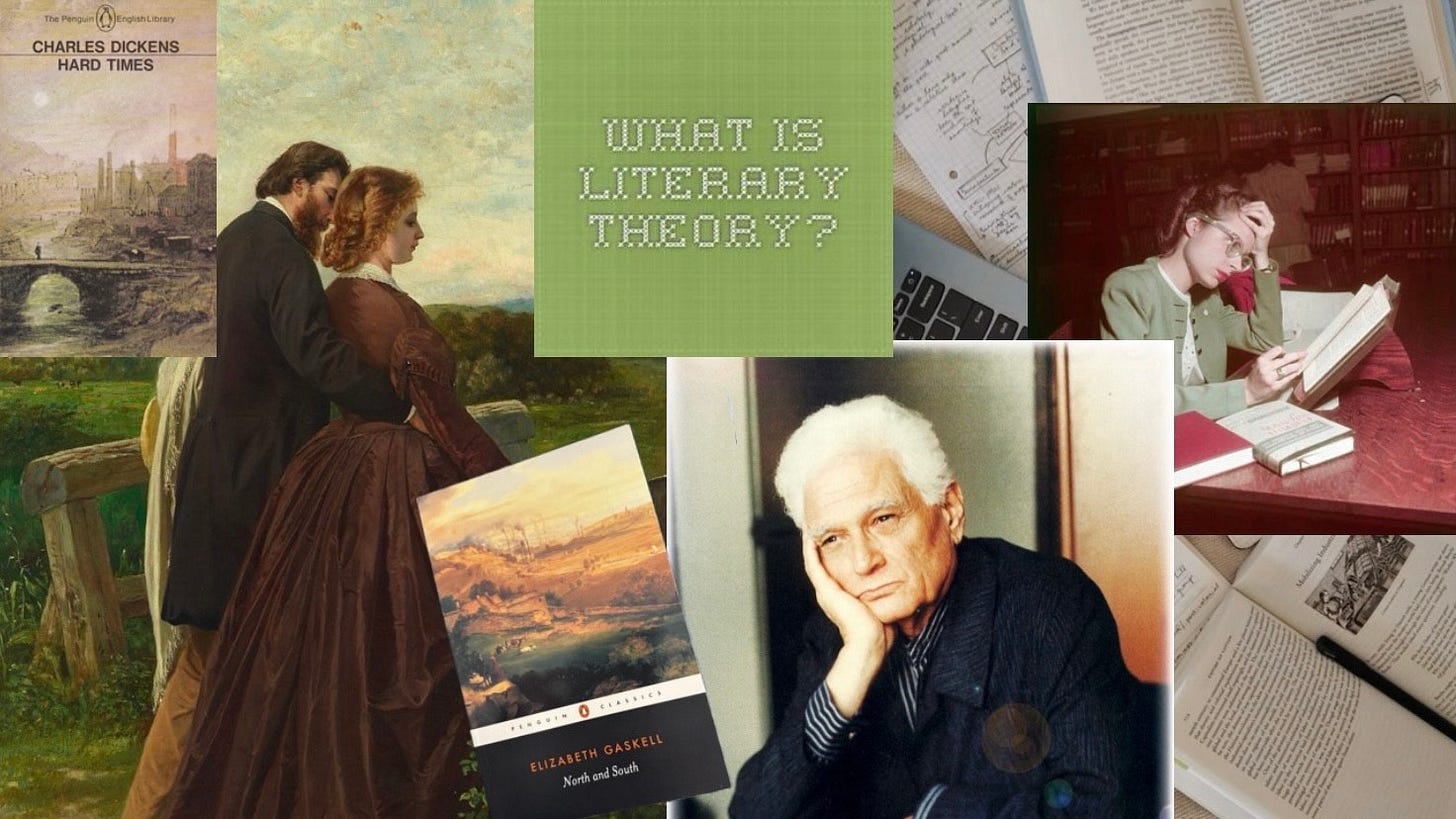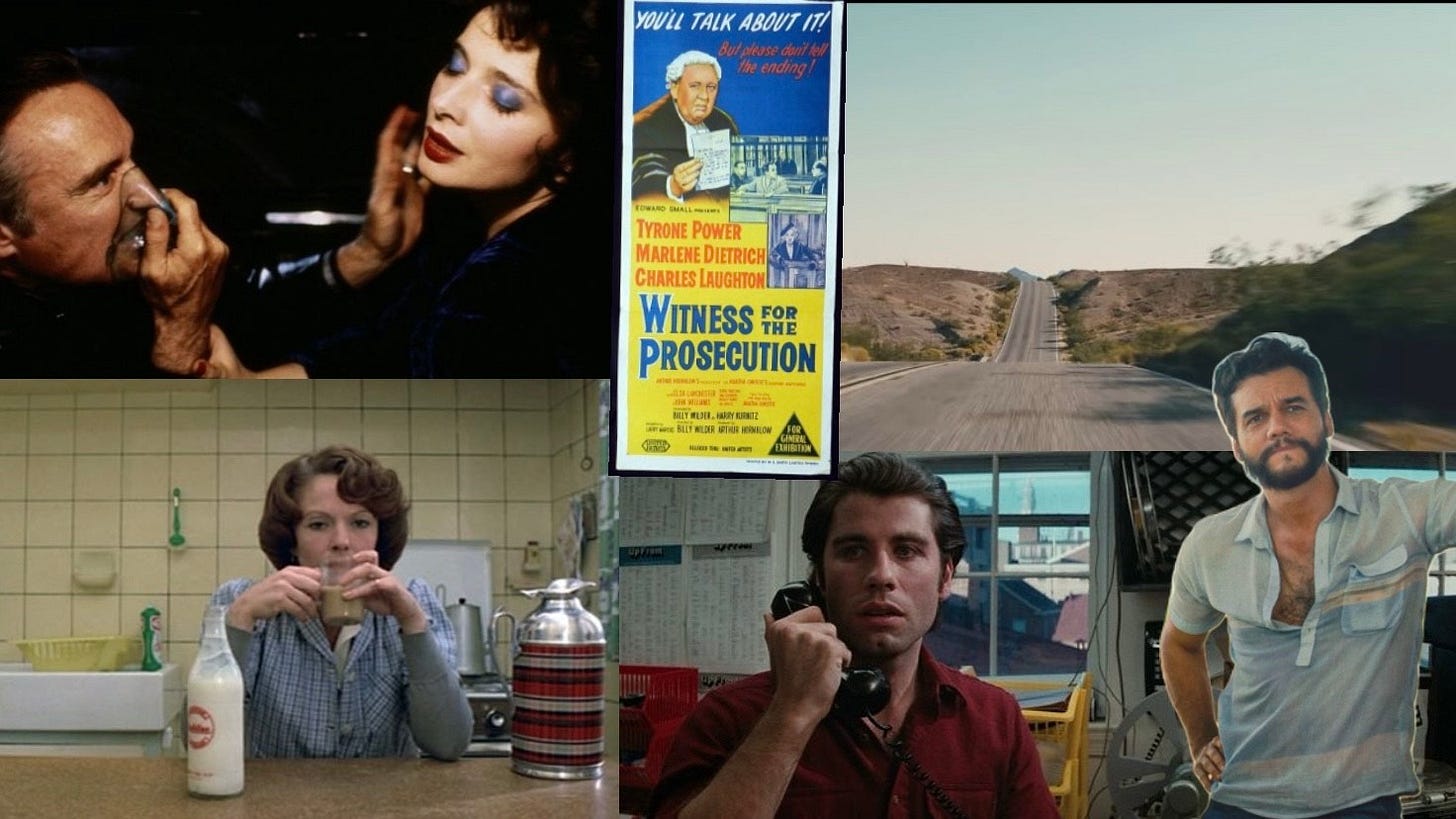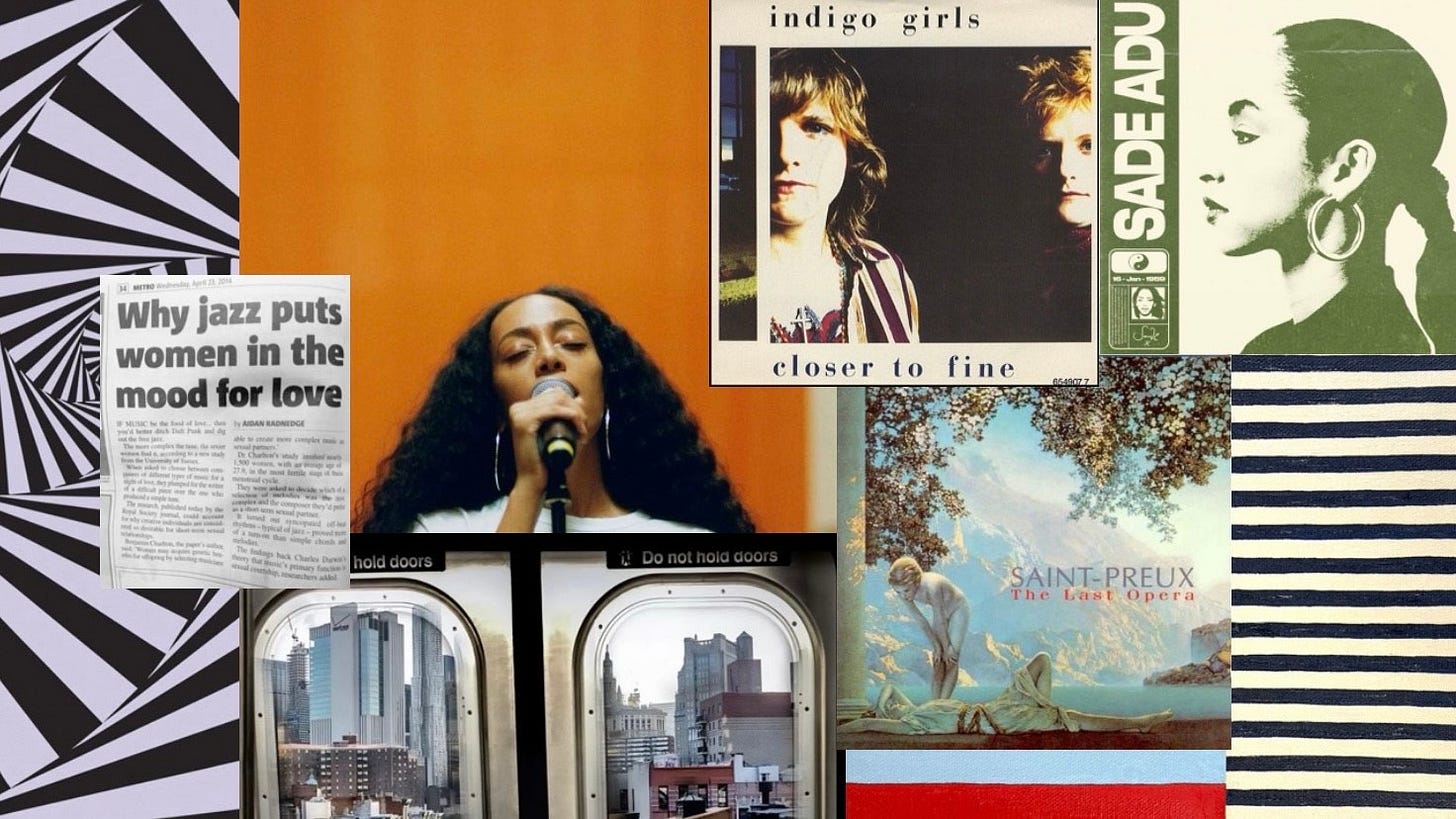Methought - September/2025
Monthly wrap-up: Cormac McCarthy's cowboys, trying to understand poetry and Derrida, PTA's sinister and ridiculous revolution, Jeanne Dielman's boring existence, music for a romcom in the '90s, etc.
Scroll down to read the English version
Caros leitores,
Às vezes até aquilo que você mais gosta de fazer se torna uma obrigação estressante dependendo das circunstâncias. Foi o que aconteceu comigo neste último mês, e precisei dar uma pausa de tudo, inclusive de ler e escrever. Senti um cansaço muito grande em setembro, e vocês podem ver o reflexo disso na minha sutil ausência neste website e na pouca leitura (para os meus padrões) registrada aqui.
A boa notícia é que a pausa funcionou e recuperei o elã literário, agora só me falta tempo e organização, pois outubro será um mês cheio. Tudo isso para dizer que é impossível funcionar na capacidade máxima o tempo todo (autocrítica).
Têm momentos em que você vai ser sua pior versão mesmo, e a vida é isso — nessas horas, vale lembrar que “produtividade” é uma neurose propagada pelo neoliberalismo para nos impedir de questionar os sistemas de trabalho e consumo. Dito isso: recomendo ler Leisure, the Basis of Culture de Josef Pieper.
O poema do mês é do meu querido Dylan Thomas, de quem eu estava com saudades. Preciso reler alguns poemas dele.
LIVROS &TC
Todos os Belos Cavalos - Cormac McCarthy (1992)
Comecei esse livro no início de setembro e não terminei, pelos motivos que mencionei anteriormente. Adoro Cormac McCarthy (Meridiano de Sangue é uma das melhores coisas que já li), e este livro tem tudo o que você imaginaria ao pensar no autor e seus gostos. Situado nos EUA nos anos 1950, Todos os Belos Cavalos narra a jornada de John Grady Cole, um jovem rancheiro que tem um dom com cavalos, do Texas até o México. Acompanhado de outros dois rapazes, John vai desbravando gradualmente as terras ermas entre a fronteira dos dois países. Ainda não terminei de ler, mas pelo que pude entender, esta é uma espécie de romance de formação, escrito numa prosa soturna e simples (mas ainda assim muito bonita), característica de McCarthy, e que também reflete a personalidade de seu protagonista. Curiosa para saber onde esta história vai dar.
Assassinato na Casa do Pastor - Agatha Christie (1930)
Estou tentando evitar usar o celular antes de dormir. Tenho dificuldade de pegar no sono e preciso de uma “distração”. A solução que encontrei foi ler algo “simples” no Kindle: tem que ser entretenimento o suficiente para afastar pensamentos ansiosos, mas não pode ser complexo demais a ponto de me deixar acordada. Por isso baixei alguns livros de Agatha Christie e eles têm me acompanhado na hora de dormir. Esta é uma releitura de um dos meus favoritos.
Na pequena vila de St. Mary Mead, um coronel pouco querido é assassinado a sangue frio na casa do pastor. Existe uma dezena de suspeitos, e o próprio pastor (que também é o narrador) faz as vias de detetive junto com a icônica Miss Marple. É um dos livros mais divertidos de Agatha, na minha opinião.
ARTIGOS, ENSAIOS, PALESTRAS
Industrial Culture and the Victorian novel - Joseph W. Childers
A neat separation of industrialism and the novel is nearly impossible in the years between 1832 and 1867. Each looked to the other for models of effecting and controlling as well as understanding change.
O romance vitoriano é um objeto de eterno fascínio para mim, e um dos aspectos mais interessantes que o diferencia dos romances dos séculos anteriores é a forte relação de mútua determinação entre a literatura e o contexto socioeconômico da Inglaterra na época. O artigo explica de forma bastante didática — inclusive usando vários romances de exemplo, como Hard Times de Dickens e Mary Barton de Gaskell — como as profundas mudanças sociais e políticas causadas pela industrialização econômica afetaram a cultura literária, importantíssimo para contextualizar a leitura das obras desse período. Li esse texto para o meu grupo de pesquisa em Literatura Vitoriana, e você pode encontrá-lo no Cambridge Companion to the Victorian Novel.
What is theory? - Jonathan Culler (1997)
Theory makes you desire mastery: you hope that theoretical reading will give you the concepts to organize and understand the phenomena that concern you. But theory makes mastery impossible, not only because there is always more to know, but, more specifically and more painfully, because theory is itself the questioning of presumed results and the assumptions on which they are based. The nature of theory is to undo, through a contesting of premisses and postulates, what you thought you knew, so the effects of theory are not predictable.
Esse texto extremamente didático e introdutório é perfeito para quem nunca estudou teoria crítica e quer começar. Culler esclarece vários equívocos quanto à definição de teoria, bem como à sua aplicabilidade. Ele usa Derrida e Foucault como exemplos, e conclui o texto com um resumo dos tópicos abordados. De fato este texto é o Theory 101, recomendo bastante.
Che cos’è la poesie? - Jacques Derrida (1988)
I call a poem that very thing that teaches the heart, invents the heart, that which, finally, the word heart seems to mean and which, in my language, I cannot easily discern from the word itself.
Confesso que entendi pouco ou nada deste texto, no qual Derrida responde de forma bastante hermética a uma pergunta que já é abstrata o suficiente por si só: “O que é a poesia?”
Pelo que pude compreender, Derrida flaneia através de conceitos relacionados a “aprender algo de cor”, em diversos idiomas, e relaciona essa ideia com a poesia, que seria memorizada pelo coração (“economia da memória”), se levarmos ao pé da letra figuras de linguagem como “learn by heart” ou “apprendre par coeur”. Se alguém aqui leu esse texto e entendeu do que ele se trata, por favor não hesite em comentar.
FILMES & SÉRIES
Jeanne Dielman, 23, quai du Commerce, 1080 Bruxelles - Chantal Akerman (1975)
Esse filme proporcionou um curioso trauma bonding entre mim e meu namorado. Dizer que Jeanne Dielman poderia transmitir a mesma mensagem em uma ou duas horas a menos soa simplista — embora seja verdade. Em resumo, assistir a esse filme (mesmo no cinema) foi uma experiência extremamente alienante. Reconheço que, para muitos, o momento em que Jeanne deixa uma colher cair no chão, após quase três horas de uma rotina doméstica meticulosamente repetida, pode ser emocionante. Mas, nesse ponto, a sensação de alienação já havia dado a volta e me perdido por completo.
O filme é uma tortura e isso é fato. Contudo, para aqueles que o elogiam a ponto de me convencerem a não fugir da sala do cinema, essa tortura só pode ser uma dor prazerosa, capaz de revelar algo encantador que, para mim, permaneceu invisível. Eu só queria que Jeanne enlouquecesse logo e ponto. Nem eu nem meu namorado conseguimos ultrapassar os artifícios do filme: as cenas longas e sem cortes de Jeanne tomando uma sopa, dobrando roupas ou lavando pratos, para que o espectador compartilhe de seu desgaste e monotonia; ou o silêncio perpétuo, interrompido apenas pelo som estridente de panelas batendo ou bebês chorando. Logo após a cena do banho, que ocorre nos primeiros vinte minutos, já estava claro para mim qual era a proposta: construir algo cansativo, padronizado e formal, marcado pelo cuidado nos movimentos e na montagem, de modo a prender o espectador na rotina sufocante daquele apartamento — para que, mais tarde, as microquebras do cotidiano tivessem um impacto dramático.
Mas é aí que surge novamente o problema das 3h30 de duração: tendo entendido tudo isso antes da primeira hora, as três seguintes se transformaram em um mero desafio de resistência. Ainda assim, não desistimos como as nove pessoas que abandonaram a sala (eu contei); era preciso chegar ao fim para poder comentar com propriedade e não perder o direito de não gostar do filme. Na verdade, só não fui embora por causa dos comentários prévios que o colocavam como uma “obra-prima”, e eu queria muito entender o porquê. Continuo confusa, e suspeito que Akerman, com o hipnotismo dos movimentos repetitivos de Jeanne, acabou realizando uma espécie de lavagem cerebral em muitos. Senti que enlouqueci (tive crises de riso na hora 2) e voltei a ser sã e o filme ainda não tinha terminado.
One Battle After Another - Paul Thomas Anderson (2025)
São raras as vezes que é possível ter uma experiência monumental no cinema, e eu sempre fico muito animada quando isso acontece. A última vez que me senti assim — olhando para a telona admirada com a grandiosidade; vendo cenas de encher os olhos — foi assistindo Babilônia de Damien Chazelle (o filme mais injustiçado do século XXI).
Sempre gostei do trabalho de PTA (Phantom Thread é um dos meus filmes favoritos), e fico satisfeita em constatar que tenho razão, pois parece que ele só melhora com o tempo. Levemente baseado em Vineland de Thomas Pynchon, One Battle After Another acompanha um grupo de revolucionários americanos que se opõem a um governo não muito diferente do atual. Após uma séria derrota, parte do grupo é obrigado a se esconder, até que um inimigo do passado volta a persegui-los. Esse normalmente não é meu tipo de filme, mas é tão bem feito que me conquistou.
É difícil fazer um filme que critique os absurdos da contemporaneidade sem soar excessivamente didático ou sem se tornar aquilo que desejava criticar. Na verdade, isso vale para qualquer obra em qualquer tempo que tenha este objetivo. PTA quase opera um milagre ao equilibrar perfeitamente na narrativa o ridículo e o sinistro, principalmente através do inesquecível personagem Lockjaw, interpretado por Sean Penn. Há tanto que eu poderia falar aqui, mas vou ter que me conter. Em resumo, acredite em todos os exageros que a crítica publicou sobre esse filme.
The Gilded Age - season three (2025)
Eu sou a única pessoa que conheço que assiste The Gilded Age, o que é uma lástima, pois essa série é adoravelmente divertida. É do mesmo criador de Downton Abbey, por isso você pode imaginar: low stakes, glamour e luta de classes. Achei essa temporada a melhor e mais dramática até agora. Os figurinos impecáveis como sempre, e as reviravoltas bem equilibradas entre o crível e o rocambolesco. Ansiosa para a quarta temporada, até porque aquele finale com a maravilhosa Carrie Coon… divino!
The Thursday Murder Club - Chris Columbus (2025)
Um grupo de velhinhos aposentados se juntam para tentar desvendar “cold cases” como passatempo e acabam tendo que resolver um crime que acontece bem próximo a eles. É um filme bem bobinho e agradável, característico pelo o clássico humor inglês que eu adoro.
Witness for the Prosecution - Billy Wilder (1957)
Revi esse filme depois de anos e continua sendo tão bom quanto eu lembrava. Só Agatha Christie para pensar num personagem tão inglês como o advogado Sir Wilfrid e num mistério tão enrolado como esse. É um thriller divertidíssimo e fica melhor ainda devido às atuações maravilhosas de Marlene Dietrich e Charles Laughton.
Blue Velvet - David Lynch (1986)
Engraçado ver esse filme depois de ter terminado Twin Peaks e perceber todas as sementes temáticas que Lynch desenvolveria na série, como a perda de inocência e o lado obscuro (ou mesmo a farsa) do American Dream. Blue Velvet é incômodo de um jeito que só Lynch sabia fazer, e não acho que todo mundo vá apreciar esse incômodo. Mesmo assim, acho um filme importante para entender a visão dele. Gostei, mas não amei.
Blow Out - Brian De Palma (1981)
Imagine um thriller de conspiração política cujo ponto de partida do mistério se encontra nas gravações acidentais de um sonoplasta (John Travolta) que testemunha um possível crime. Esse filme é brilhante. Incrivelmente bem editado, construído e dirigido. É um dos melhores que já vi até onde me lembro. É muito difícil pra mim tentar transmitir a maravilha das coisas que eu amo, talvez por me animar demais e temer que vocês interpretem meus elogios como exageros, mas toda hipérbole aqui é merecida. O começo é sensacional por ser meio ridículo e absurdo, e o final é sensacional por ser tragicamente belo. Sei que vou querer rever Blow Out muitas vezes ainda (queria poder esquecê-lo para poder assistir de novo com a mesma empolgação).
The Last Showgirl - Gia Coppola (2024)
Não esperava que esse filme fosse provocar tantas emoções (não há outra forma de dizer isso, tenho que ser breguinha). The Last Showgirl é bastante agridoce pois, dentre as falhas da maternidade e a dificuldade do envelhecimento, ele levanta uma questão que muito me aflige: e se perseguir os sonhos não valer a pena, e você terminar sozinho e destituído na velhice?
Shelley é uma dançarina de cabaré em Las Vegas e vê seu ofício como uma arte digna de respeito e admiração. Ela fez parte do mesmo show há décadas, viveu a época dourada dos casinos e experimentou o prestígio de uma profissão que agora é decadente. De fato, existe uma decadência latente e muito bem trabalhada nesse filme, o que acentua a atmosfera de “fim de uma era” da narrativa — os figurinos, canções e coreografias intencionalmente datadas (e característicos dos anos 80) são apenas alguns exemplos, mas é na atuação brilhante de Pamela Anderson e Jamie Lee Curtis que vemos o glamour esmaecido da figura mítica da “showgirl”. Talvez nem todo mundo veja o que eu vi nesse filme, mas para quem nutre ambições artísticas numa época de tantas incertezas e horrores socioeconômicos e políticos, é possível se ver na personagem de Pamela e compartilhar do seu desespero misturado à paixão por algo que poucos entenderiam.
Saturday Night - Jason Reitman (2024)
Estava curiosa para ver esse filme pois eu genuinamente gosto do SNL e acompanho o programa há tempos. Saturday Night é divertido, tem boas piadas e ótimas imitações de grandes comediantes, mas é meio lambe-botas em seu tom. Críticos piores podem suspeitar de Reitman estar devendo algo a Lorne Michaels.
O Agente Secreto - Kleber Mendonça Filho (2025)
Difícil falar desse filme, principalmente das minhas ressalvas sobre ele, sem dar spoiler, mas vou tentar. É quase impossível separar Kleber (ou melhor, a obra dele) de Recife, nossa cidade natal. Isso é intencional e pode ser tanto um atrativo pitoresco quanto um mecanismo de alienação. Em muitos aspectos, O Agente Secreto encanta pela nostalgia que um recifense de meia idade pode sentir ao ver sua cidade da juventude impecavelmente reconstruída na tela, e isso não é um defeito nem um demérito, mas ao assistir o filme, não pude deixar de me perguntar se um alemão ou um japonês veriam a mesma graça naquelas ruas e pontes (aparentemente o filme consegue sim transpor essas barreiras geográficas, tendo em vista seu sucesso em Cannes).
O longa acompanha a história de Marcelo durante alguns dias passados no fim do feriado de carnaval. Ele está fugindo de algo ou alguém, mas não sabemos exatamente o que. Considerando que na época havia uma ditadura bastante repressiva, supõe-se que sua fuga tem a ver com isso. A primeira metade do filme tem um ótimo ritmo: a trama mistura mistério, intriga policial e humor em boas doses, mesmo fazendo algumas críticas sociais a lá Facebook. Porém, uma conexão com o presente na segunda metade tirou a narrativa do eixo em vários momentos, e o final me deixou com um sentimento de frustração, de uma catarse não realizada — apesar de eu saber que essa escolha conceitual foi intencional e entender o que ela significa, ainda assim achei que sua execução poderia ter sido melhor. É como se o filme acumulasse uma pilha de tensão e depois não a soltasse. Como espectadora, foi emocionalmente broxante.
Weapons - Zach Cregger (2025)
Um filme de terror quando é ruim é péssimo, e quando é bom é ótimo. Weapons é ótimo, e tem um estranho tom humorístico em meio a cenas grotescas, em parte graças a uma excelente caracterização e efeitos especiais. Gostei principalmente da estrutura da história, retratando os mesmos eventos em diferentes pontos de vista que, aos poucos, complicam ao mesmo tempo que revelam o mistério.
MÚSICA & PODCASTS
Debonair playlist
Eu gosto de ter playlists que funcionem como música de fundo para alguma atividade. Estava sentindo falta de algo mais “groovy” porém moderno, para ouvir enquanto cozinho ou durante um jantar com amigos. Também é uma boa opção para tocar no início de festas. É basicamente só R&B.
The Last Opera - Saint-Preux (1994)
Esse álbum é incrível por si só, mas tenho ouvido bastante enquanto escuto ou escrevo. São músicas clássicas contemporâneas inspiradas (suponho) no tipo de drama e romantismo de Debussy ou Fauré — digo isso pois a atmosfera do álbum me lembra Prélude à l’après-midi d’un faune e Pelléas et Mélisande. Também me lembra um conto de fadas. Enfim, é lindo demais, escutem!
Indigo Girls - Indigo Girls (1989)
Descobri essa banda recentemente e estou obcecada. Adoro músicas que me fazem sentir numa comédia romântica dos anos 90. Se você gosta de The Sundays, The Cardigans, Tori Amos etc., você precisa conhecer.
Dear readers,
Sometimes even the things you enjoy doing most can become stressful obligations depending on the circumstances. That’s what happened to me this past month, and I needed to take a break from everything, including reading and writing. I felt very tired in September, and you can see this reflected in my subtle absence from this website and the lack of reading (by my standards) recorded here.
The good news is that the break worked and I regained my literary enthusiasm. Now I just need time and organisation, as October will be a busy month. All this to say that it is impossible to function at full capacity all the time (self-criticism).
There are moments when you will be your worst self — so what? At times like these, it is worth remembering that ‘productivity’ is a neurosis propagated by neoliberalism to prevent us from questioning the systems of work and consumption. That said, I recommend reading Leisure, the Basis of Culture by Josef Pieper.
The poem of the month is by my dear Dylan Thomas, whom I have been missing. I need to reread some of his poems.
BOOKS &TC
All the Pretty Horses - Cormac McCarthy (1992)
I started this book in early September and didn’t finish it, for the reasons I mentioned earlier. I love Cormac McCarthy (Blood Meridian is one of the best things I’ve ever read), and this book has everything you would imagine considering the author and his tastes. Set in the United States in the 1950s, All the Pretty Horses chronicles the journey of John Grady Cole, a young rancher with a gift for horses, from Texas to Mexico. Accompanied by two other boys, John gradually explores the barren lands between the two countries’ borders. I haven’t finished reading it yet, but from what I can gather, this is a kind of coming-of-age novel, written in the sombre and simple (but still very beautiful) prose characteristic of McCarthy, which also reflects the personality of its protagonist. I’m curious to see where this story will lead.
Murder at the Vicarage - Agatha Christie (1930)
I’m trying to avoid using my phone before bed. I have trouble falling asleep and need a “distraction”. The solution I found was to read something “simple” on my Kindle: it has to be entertaining enough to keep anxious thoughts at bay, but not so complex that it keeps me awake. So I downloaded some Agatha Christie books, and they have been keeping me company at bedtime. This is a re-reading of one of my favourites.
In the small village of St. Mary Mead, an unpopular Colonel is murdered in cold blood at the vicar’s house. There are a dozen suspects, and the vicar himself (who is also the narrator) plays detective alongside the iconic Miss Marple. It is one of Agatha’s most amusing books, in my opinion.
ARTICLES, ESSAYS, LECTURES
Industrial Culture and the Victorian novel - Joseph W. Childers
A neat separation of industrialism and the novel is nearly impossible in the years between 1832 and 1867. Each looked to the other for models of effecting and controlling as well as understanding change.
The Victorian novel is an object of eternal fascination for me, and one of the most interesting aspects, which sets it apart from novels of previous centuries, is the strong relationship of mutual determination between literature and the socio-economic context of England at the time. The article explains in a very didactic way — including using several novels as examples, such as Dickens' Hard Times and Gaskell's Mary Barton — how the profound social and political changes caused by economic industrialisation affected literary culture, which is extremely important for contextualising your reading of works from this period. I read this piece for my Victorian Literature research group, and you can find it in The Cambridge Companion to the Victorian Novel.
What is theory? - Jonathan Culler (1997)
Theory makes you desire mastery: you hope that theoretical reading will give you the concepts to organize and understand the phenomena that concern you. But theory makes mastery impossible, not only because there is always more to know, but, more specifically and more painfully, because theory is itself the questioning of presumed results and the assumptions on which they are based. The nature of theory is to undo, through a contesting of premisses and postulates, what you thought you knew, so the effects of theory are not predictable.
This extremely didactic and introductory text is perfect for anyone who has never studied critical theory and wants to begin. Culler clarifies several misconceptions regarding the definition of theory, as well as its applicability. He uses Derrida and Foucault as examples, and concludes the piece with a summary of the topics discussed. Indeed, this text is like Theory 101 — highly recommended.
Che cos’è la poesie? - Jacques Derrida (1988)
I call a poem that very thing that teaches the heart, invents the heart, that which, finally, the word heart seems to mean and which, in my language, I cannot easily discern from the word itself.
I must confess I understood little or nothing of this text, in which Derrida offers a rather hermetic response to a question already abstract enough in itself: “What is poetry?”
From what I could gather, Derrida meanders through concepts related to “learning something by heart” in various languages, and connects this idea with poetry, which would be memorised by the heart (“economy of memory”), if we take literally figures of speech such as “learn by heart” or “apprendre par cœur.” If anyone here has read this text and actually grasped what it is about, please do not hesitate to comment.
FILMS & SERIES
Jeanne Dielman, 23, quai du Commerce, 1080 Bruxelles - Chantal Akerman (1975)
This film created a curious trauma bonding between me and my boyfriend. To say that Jeanne Dielman could convey the same message in an hour or two less sounds simplistic — although it is true. In short, watching this film (even at the cinema) was an extremely alienating experience. I admit that, for many, the moment when Jeanne drops a spoon on the floor, after almost three hours of meticulously repeated domestic routine, can be moving. But at that point, the feeling of alienation had already taken over and completely lost me.
The film is torture, and that's a fact. However, for those who praise it to the point of convincing me not to flee the cinema, this torture can only be a pleasurable pain, capable of revealing something enchanting that, for me, remained invisible. I just wanted Jeanne to go mad already, period. Neither my boyfriend nor I could get past the film's artifices: the long, uncut scenes of Jeanne eating soup, folding clothes or washing dishes, so that the viewer shares in her exhaustion and monotony; or the perpetual silence, interrupted only by the shrill sound of pots clanging or babies crying. Right after the shower scene, which occurs in the first twenty minutes, it was already clear to me what the intention was: to construct something wearisome, patterned and formal, marked by careful movements and editing, in order to trap the viewer in the suffocating routine of that apartement — so that, later on, the micro-breaks in daily life would have a dramatic impact.
But that's where the problem of the 3½-hour running time arises again: having understood all this before the first hour, the next three became a mere test of endurance. Still, we didn't give up like the nine people who left the theatre (I counted); we had to get to the end in order to comment properly and not lose the right to dislike the film. In fact, I only stayed because of the previous reviews that called it a ‘masterpiece,’ and I really wanted to understand why. I'm still confused, and I suspect that Akerman, with the hypnotism of Jeanne's repetitive movements, ended up brainwashing many people. I felt like I was going insane (I had fits of laughter at the two-hour mark), and then I came back to my senses, and the film still wasn't over.
One Battle After Another - Paul Thomas Anderson (2025)
It’s a rare thing to have a truly monumental experience at the cinema, and I’m always thrilled when it happens. The last time I felt that way — gazing at the big screen in awe, watching scenes that dazzled the eyes — was while watching Damien Chazelle’s Babylon (the most aggrieved movie of the 21st century).
I have always admired PTA’s work (Phantom Thread is one of my favourites), and I am glad to confirm that I was right, for he only seems to improve with time. Loosely based on Thomas Pynchon’s Vineland, One Battle After Another follows a group of American revolutionaries resisting a government not unlike the present one. After a crushing defeat, part of the group is forced into hiding until an old enemy returns to hunt them. This isn’t usually my kind of film, but it is so well executed that it won me over.
It’s difficult to make a film that critiques the absurdities of contemporary life without sounding overly didactic or becoming precisely what it set out to criticise. In fact, this applies to any work in any era that pursues such a goal. PTA comes close to performing a miracle by balancing the ridiculous and the sinister so perfectly within the narrative, especially through the unforgettable character Lockjaw, played by Sean Penn. There is so much more I could say here, but I must restrain myself. In short: believe every bit of critical hype you may have read about this film.
The Gilded Age - season three (2025)
I am the only person I know who watches The Gilded Age, which is a shame because this series is adorably entertaining. It's from the same creator of Downton Abbey, so you can imagine: low stakes, glamour, and class warfare. I thought this season was the best and most dramatic so far. The costumes are impeccable as always, and the twists and turns are well-balanced between believable and far-fetched. I'm looking forward to season four, especially because of that finale with the wonderful Carrie Coon... divine!
The Thursday Murder Club - Chris Columbus (2025)
A group of retired old folks get together to try to solve cold cases as a hobby and end up having to solve a crime that happens right under their noses. It's a silly, enjoyable film, full of British humour and good performances (especially Helen Mirren).
Witness for the Prosecution - Billy Wilder (1957)
I rewatched this film after many years, and it is still as good as I remembered. Only Agatha Christie could come up with such a quintessentially English character as Sir Wilfrid, the barrister, and such a convoluted mystery. It is a highly entertaining thriller, made even better by the wonderful performances of Marlene Dietrich and Charles Laughton.
Blue Velvet - David Lynch (1986)
It's funny to watch this film after finishing Twin Peaks and realise all the thematic seeds that Lynch would develop in the series, such as the loss of innocence and the dark side (or even the farce) of the American Dream. Blue Velvet is unsettling in a way that only Lynch knew how to do, and I don't think everyone will appreciate that unsettling feeling. Even so, I think it's an important film for understanding his vision. I liked it, but I didn't love it.
Blow Out - Brian De Palma (1981)
Imagine a political conspiracy thriller whose mystery begins with the accidental recordings of a sound engineer (John Travolta) who witnesses a possible crime. This film is brilliant. Incredibly well edited, constructed and directed. It's one of the best I've ever seen, as far as I can remember. It's very difficult for me to try to convey the wonder of the things I love, perhaps because I get too excited and fear that you will interpret my praise as exaggeration, but every bit of hyperbole here is deserved. The beginning is sensational because it's kind of ridiculous and absurd, and the ending is sensational because it's tragically beautiful. I know I'll want to rewatch Blow Out many times (I wish I could forget it so I could watch it again with the same excitement).
The Last Showgirl - Gia Coppola (2024)
I didn't expect this film to stir up so many emotions (there's no other way to put it, I have to be corny). The Last Showgirl is quite bittersweet because, amid the failures of motherhood and the difficulties of ageing, it raises a question that greatly distresses me: what if pursuing your dreams isn't worth it, and you end up alone and destitute in your old age? Shelley is a cabaret dancer in Las Vegas who sees her craft as an art form worthy of respect and admiration. She has been part of the same show for decades, lived through the golden age of casinos and experienced the prestige of a profession that is now in decline. In fact, there is a latent and very well-crafted decadence in this film, which accentuates the ‘end of an era’ atmosphere of the narrative — the intentionally dated costumes, songs and choreography (characteristic of the 1980s) are just a few examples, but it is in the brilliant performances of Pamela Anderson and Jamie Lee Curtis that we see the faded glamour of the mythical figure of the ‘showgirl’. Perhaps not everyone sees what I saw in this film, but for those who harbour artistic ambitions in a time of so much uncertainty and socio-economic and political horror, it is possible to see oneself in Pamela's character and share her despair mixed with passion for something that few would understand.
Saturday Night - Jason Reitman (2024)
I was curious to see this film because I genuinely like SNL and have been following the programme for a long time. Saturday Night is entertaining, has good jokes and great impressions of great comedians, but it's a bit of a bootlicker in its tone. Worse critics might suspect Reitman of owing something to Lorne Michaels.
The Secret Agent - Kleber Mendonça Filho (2025)
It is hard to talk about this film, especially my reservations about it, without giving away spoilers, but I’ll try. To separate Kleber (or rather, his work) from Recife, our home town, is almost impossible. This is intentional and can function either as a picturesque attraction or as a mechanism of alienation. In many respects, The Secret Agent captivates through the nostalgia that a middle-aged person from Recife might feel upon seeing the city from their youth impeccably reconstructed on screen. This is neither a flaw nor a fault, yet while watching the film, I couldn’t help wondering whether a German or a Japanese audience would find the same charm in those streets and bridges (apparently the film does manage to overcome such geographical barriers, considering its success at Cannes).
The movie follows the story of Marcelo during a few days at the end of the Carnival holiday. He’s on the run from something or someone, but we don’t know exactly what. Given that the period was marked by a highly repressive dictatorship, one assumes his flight is related to that. The first half of the film has an excellent rhythm: the plot blends mystery, detective intrigue, and humour in good measure, while even offering a few social critiques à la Facebook. However, a connection to the present in the second half repeatedly knocked the narrative off balance, and the ending left me with a sense of frustration, of a catharsis unrealised. Although I understand that this conceptual choice was deliberate and what it was meant to signify, I still felt its execution could have been stronger. It is as if the film amasses a great heap of tension and then fails to release it. As a spectator, it was emotionally deflating.
Weapons - Zach Cregger (2025)
A horror film, when bad, is dreadful, and when good, is excellent. Weapons is excellent, and carries a strangely humorous tone amidst grotesque scenes, thanks in part to outstanding characterisation and special effects. What I particularly enjoyed was the structure of the story, portraying the same events from different points of view which, little by little, both complicate and unravel the mystery.
MUSIC & PODCASTS
Debonair Playlist
I like having playlists that work as background music for certain activities. I’d been missing something a bit more groovy yet modern, to listen to while cooking or during a dinner with friends. It’s also a great option to play at the start of parties. It’s basically just R&B.
The Last Opera – Saint-Preux (1994)
This album is incredible on its own, but I’ve been listening to it a lot while reading or writing. It’s contemporary classical music inspired (I suppose) by the sort of drama and romanticism of Debussy or Fauré — I say this because the album’s atmosphere reminds me of Prélude à l’après-midi d’un faune and Pelléas et Mélisande. It also makes me think of a fairy tale. In short, it’s absolutely beautiful, do listen!
Indigo Girls – Indigo Girls (1989)
I discovered this band recently and I’m obsessed. I love songs that make me feel like I’m in a ‘90s romantic comedy. If you like The Sundays, The Cardigans, Tori Amos, etc., you really need to check them out.



